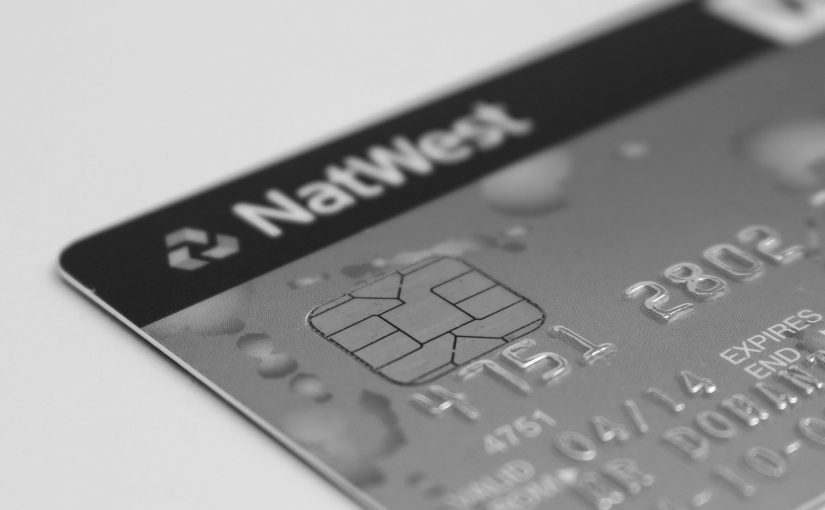We interviewed Matt Zertuche of Paymintz recently to ask him about how non-traditional industries can accept credit card and crypto payments. As the world changes, new ways of collecting payments from customers are adapting and we were incredibly interested in knowing more about this topic.
First, what’s considered a high risk industry?
High risk merchant processing is very similar to providing fire insurance to high brush real estate. The increased scrutiny, cost, and volatility is a result of the environment. Because of surrounding conditions, processes or products, providing merchant services can be risky.
For example, when a consumer purchases something at a café or eatery in person, there is a .01% chance that the transaction will be refunded or contested in a chargeback. But when a consumer buys an airplane ticket online, the likelihood of a refund or chargeback is around 50 times greater. Most of the larger and more established banks have decided that the margins are too small to provide processing to companies with greater than average chargeback risk.
What is important to understand for merchants and their businesses is that the act of funding a sale, usually the day after a successful transaction, is viewed as a loan by processing companies. Assuming all goes well for the consumer or the credit card owner, the loan doesn’t have to be paid back.
However, that consumer or credit card user has three months to determine if that transaction met their expectations. In the event it doesn’t, they can ask for a refund or begin a chargeback procedure and Visa/Mastercard policies will require immediate reversal of funding in the event of a chargeback. A merchant processing company must comply or risk a heavy fine or expulsion from the Visa/Mastercard network. If the merchant or business doesn’t have the finances to satisfy the chargeback or refund, the processor or credit card service provider MUST foot the bill.
Therefore, when the product or service has a greater likelihood of chargeback or refund, it is high-risk to a merchant processor but there are many factors that change the risk of chargebacks and refunds. The higher dollar amounts per credit card transaction are a greater risk than lower amounts. Accepting credit cards online or by phone instead of in-person sales will add to risk since more fraudulent purchases occur online.
Certain products such as guns, tobacco, or CBD add risk due to regulations in sales practices or being associated with criminal activity and fraud. Services such as debt collection that have difficulty producing predicted outcomes or fulfillment satisfaction for clients are at increased risk of chargebacks. When you couple high dollar amounts, online purchasing and products like tobacco, CBD, firearms, it will require a special processor with a substantially higher risk tolerance.
Why won’t traditional banks or payment processors accept businesses that fall under these categories?

Margins made by banks on merchant processing are very small. In most cases, it’s pennies on each sale. Chargebacks or refunds are paid by the bank in the event the merchant or business doesn’t have adequate funds to cover. For example, a successful transaction in the amount of $1000 will net a processing bank between $1.00 – $1.50. However, if the transaction is refunded or results in a chargeback, they may have to pay $1000 back to the credit card holder.
However, high risk accounts often have chargeback risks much greater. Let’s presume that the chargeback risk is 0.5%, with 10,000 transactions at $100 transaction average. Bank revenues, remaining the same, would be outpaced by chargeback amounts of $5000. Underwriting procedures become even more significant and merchants in their infant stage of doing business, with less liquidity, will be highly scrutinized if not denied a merchant account since the bank is uncertain they can handle chargeback costs.
Many of the biggest banking institutions feel that not only is there not enough potential profits but avoid high risk industries for public relations. Big bank will rationalize not doing business with morally debated businesses like guns and ammo merchants because of the amount of money they spend on PR. Additionally, those large and most established institutions won’t change underwriting guidelines for different types of industries and don’t profit enough to care.
What options do new business owners (where their business falls into one of these categories) have when they wish to take electronic payments?
There are plenty of options for a high risk business owner who wants to sell products online or in-person as long as they find a reliable high-risk merchant service provider first. In the event that a high-risk business wants to do business online, they only are restricted from the aggregators or flat rate services. The most popular merchant platforms that offer flat rates, like 3.5% per charge, will not permit a high risk businesses on their platform.
Flat rate processors do not include underwriting procedures which is how they permit non-risky merchants to process credit cards quickly with a very basic registration. When a high-risk business or merchant processes a transaction through a flat rate processor, funding will be held and the accounts may canceled once they discover a transaction that doesn’t fit their risk profile. Commonly the merchant’s funding will be held up for up to six months with little explanation except that a transaction was too risky.
The best procedure for a high-risk business is to find a reliable merchant provider and get approved first. Once they are approved a high-risk merchant account can be paired with popular gateways such as Authorize.net, or Network Merchants (NMI). These popular gateways will pair with any approved merchant account. They have a small charge per transaction for the use of the software but aren’t involved in the approval or decline of each transaction. Pairing an approved high-risk merchant account with a gateway is simple and can be completed with a short 10 minute call to the customer service of the gateway service provider.
Can merchants integrate a way to accept crypto-currency payments with a traditional credit card processing setup?

This can be complicated but, yes. Crypto-currency is actually a competitor to traditional merchant processing, Visa and Mastercard. It uses it’s own independent network to exchange digital currency and is supervised by its users. In order to integrate crypto currency, you need to start with a Visa/Mastercard network transaction, whether you are selling or buying. However, exchanging bitcoin for bitcoin doesn’t require a merchant account at all. The only integrations necessary are when someone is converting bitcoin to dollars and vice versa.
When someone decides to sell crypto currency, they will need a high-risk merchant account. Crypto, currently, is a product/service that is still misunderstood, and hard to navigate value. Therefore, it will have a higher rate of chargeback and require a high-risk services processor. While cryptocurrency hasn’t gone away, much of the investment into integrations has dried up.
Are there any additional costs that new businesses in any of these categories have to take on in order to accept electronic payment (higher fees and charges)?
Being a high risk merchant is more expensive due to limited competition and the amount of underwriting and risk and whenever excepting ecommerce, phone, non card-not-present payments the costs will always be higher. Our industry is extrememly competitive and for traditional risk profile merchants, it is much easier to find aggressive processors to beat the quoted rates.
However, that fierce competition isn’t as robust for high risk merchants. It is also very rare that a high risk processor will service many different high risk industries. Commonly, high risk processors will focus on a select few industries depending on the types of underwriting that is required. For example, some high risk processors will focus only on CBD, while others will only write debt collectors and multi-level marketing industries. High risk underwriting largely depends on the underwriting tolerance and procedures they have established.
Fees or charges for electronic payments will vary depending on how the business accepts transactions. Charges or fees are always lower when transactions take place in-person. The short answer for the extra cost is the VISA/Mastercard/AMEX “Interchange”. Credit card processors all have the same costs of doing business and costs are dictated by the interchange. The interchange is a list of every type of credit card manufactured by the major credit card companies and the costs associated for using each. However, not only does each type of credit card have a unique cost but the costs vary from card-present (in-person) and card-not-present transactions (ecommerce, telephone, non-swiped). Ecommerce transactions will cost more than in-person transactions because the interchange inflates ecommerce credit card transaction prices.
Great tip, always get 3 quotes before settling on a merchant processor. Just because you’ve been banking at one of the big banks most of your life, very rarely means they will give you the best rates. The employees involved in the banking relationships have very little to do with merchant service quotes. In fact, I’ve built my businesses courting unsatisfied merchants from those institutions.
About Matt Zertuche
Matt Zertuche is the owner of Paymintz Merchant services located in Los Angeles, CA and has been a credit card processing broker for over 3 years. Paymintz services both traditional and high risk industries and provides support for retail, mobile and ecommerce businesses. Paymintz wants to be the best merchant support for small and midsize businesses and believes that the best resources are the ones you can count on long after you receive the best rates. For a free quote and a free contactless processing terminal, call (310) 770-7478 or email [email protected]

